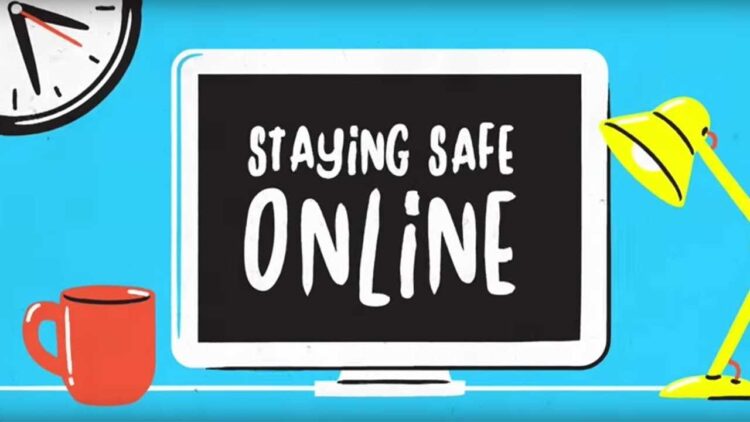Protect yourself and your family in the digital realm.
The internet’s influence in almost every aspect of our lives has become nothing short of all-pervasive in the last two decades. We work on it, shop on it, date on it, get entertained on it, pay bills and taxes on it, and communicate with each other on it. There literally is no part of our lives that isn’t in some way connected with, tied to, or influenced by the worldwide web.
But with the voluminous amount of information to be found online, there is also genuine danger and security threats that need to be recognized. When putting your personal and private data on a website, or creating a social media account, you are opening yourself up to a network of billions of other users… and sadly, some of those users have less than honorable intentions.
Reports of people having personal information and sensitive data being compromised by scammers are commonplace. And when you look closer at many of these incidents, it’s obvious how the scammers were able to do what they did. Many people are lax about what information they share online, who they share it with, and protection of that information.
This article will list 5 useful ways that you can protect yourself online.
1. Antivirus and Malware Protection
Regardless of what kind of information you input online or what websites you frequent, the first thing you should have is powerful protection against viruses and malware. The latter especially is the most common and insidious of online infections in that it will be installed on your system without you even knowing about it, and with every keystroke you perform on your device, someone is tracking and recording your information.
Do your research, find the antiviral protection program that works best for you, install it immediately, ensure it’s updated, and allow it to scan your system at regular intervals.
2. Passwords
Passwords are an effective way to secure your information online. The trouble is that many people make it easy for scammers to correctly guess it by using a password patently obvious or commonly used.
You would be stunned at how simple many people’s passwords are, with the most commonly-guessed passwords being “12345”, “Qwerty”, “Password”, or a family member name (including themselves) easily identified.
When choosing a password, use one that has a) upper and lower case letters, b) includes numbers but not entirely, and c) is at least 12 characters in length. According to Scientific American, it takes up to 62 trillion times longer to guess a 12-character password. And choose a password only you would know, so no family names, birthdates, or info easily guessed.
If you have multiple passwords, it’s recommended you use a Password Manager to keep track of them securely.
3. Fake Emails and Notifications
Known as ‘phishing’, this is when a scammer tries to extract private data from you by trying to convince you to input it online. Very often the nature of the scam will be a pop-up notification or an email in your inbox telling you that you need to send money, provide personal information, or click on a link for some supposedly legitimate reason to your benefit.
Once you’ve done this, it usually infects your device with malware or a virus that will either steal information or provide a pretext for financial blackmail of some kind.
The best way to avoid this is a) be very careful which websites you log onto, b) don’t click any pop-up notification or email on your device that you are unfamiliar with, and c) ensure your antivirus protection is suitably equipped and upgraded for these dangers.
4. Clear Your Browsing History
Sometimes you can discover that you’ve been infected with a virus or malware and haven’t even noticed. One of the worst aspects of this discovery is that the scammers will have had access to your system, including your browsing history.
By scouring someone’s individual browsing history, we can learn an incredible amount about someone, and for scammers, this is a veritable goldmine of personal and private information to be ruthlessly exploited.
It is highly recommended that after every session online, you should delete your browsing history, not only to protect your private info but also to remove tracking programs known as ‘cookies’ that attach themselves to your system and can literally track every move you make on the internet.
5. Destroy Paper Statements
One of the most common ways that scammers can steal information is by taking physical paper copies containing sensitive personal information like bank statements, financial records, and credit/debit card info.
They do this by going through trash, perhaps seizing them during a burglary, or even just taking them from someone’s desk at work. Very often, it is a crime of opportunity rather than a pre-planned operation but it nonetheless results in your sensitive and private data in the hands of someone else.
The best way to avoid this is to completely destroy your paper statements, don’t just throw them away or leave them lying around. Shredding or burning them is the most effective way to dispose of it completely and irretrievably.
Stay safe!




